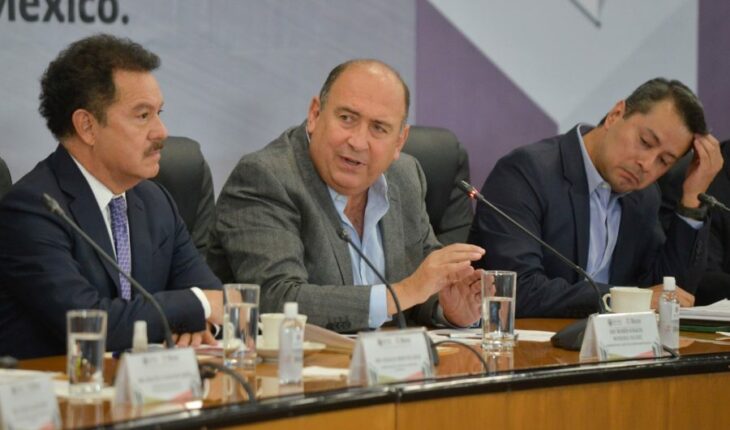The Va por México alliance, made up of PAN, PRI and PRD, gave in to its “constitutional moratorium” with which it sought not to process Morena’s proposal on an electoral reform, and today its deputies participated in a first round of discussions around the initiative.
Legislators from the PRI and the PAN attended the start of forums with which it is intended to harmonize various initiatives, with the warning that the Va por México alliance will not lend itself to approving the original proposal of Morena and President Andrés Manuel López Obrador, which plans to eliminate the National Electoral Institute (INE), create a new national body and remove the current councilors and electoral magistrates.
To date, 49 initiatives related to electoral reform have been presented, which will be discussed in forums for a month.
“We will continue to make our voice and our positions heard on electoral reform, because we want it to be heard clearly and loudly in defense of democracy and our institutions, such as the INE or the Electoral Tribunal. However, we want to make it clear once again: we will not go to any constitutional reform that seeks to weaken the INE and our democracy,” the alliance said in a statement.
He added that, although the moratorium “is firm and in force,” the bloc will continue legislative work.
The positioning of Va por México represents a change of position with respect to Monday night, when the leaders of PAN, PRI and PRD, Marko Cortés, Alejandro Moreno and Jesús Zambrano, respectively, said that none of their parliamentary coordinators would attend the forums of the Chamber of Deputies, as reported by reported Expansion.
Today, however, the Open Parliament was attended by the head of the PRI caucus, Rubén Moreira, deputy Cristina Ruiz — from the same party — and PAN deputy Jorge Triana.
Moreira, also president of the Political Coordination Board (Jucopo), even asked the leaders of the Va por México parties to enable legislative dialogue on electoral reform.
“Some of us have expressed our position on particular points, and it will always be pending in our leaders the responsibility we have, but also our leaders understand and must help us to have a deep dialogue here on many other issues and on issues that serve Mexico,” he said.
The PRI parliamentary leader added that, during the forums, a “dialectical method” will be followed, in the sense that each proposal will be proposed a counterproposal, and from there synthesize both proposals in committees.
Moreira’s accusation meant a distancing from the initial position of Va por México of not entering the discussion of any of the reforms that Morena sought.
“It will be part of the political task of the parliamentary groups to decide what can be done, I say this in the best of plans, to move to have a better law and in which the political parties, which are fundamental actors in the electoral processes, because they do not reach an agreement,” he summarized.
“What we cannot stop doing is fulfilling our legislative mission, which is to dialogue, discuss and resolve in the end,” he concluded.
After Moreira’s statement, the coordinator of the Morena caucus, Ignacio Mier, suggested that his party is willing to contrast and incorporate proposals contained in the 49 initiatives.
The Puebla legislator said that Morena will follow this “dialectical” method to avoid repeating what happened in the case of the energy reform, when the majority party tried to overwhelm the opposition without incorporating its proposals.
“We’re going to change the format. Our president of the Political Coordination Board, Rubén Moreira, said it well, it will be a dialectical process (…) Human beings are vain: sometimes, when we leave only by simple logic, we say no to everything, and more in politics, without reading it, without studying it, without knowing it, it is a mechanical response, because this is how it suits our party, the political parties and the interests of the high party bureaucracy, and it does not suit the people. ” Said.
“So, before acting logically, we are going to act, better, in a dialectical process, in its merits, the 49 initiatives, in what is positive, without disqualifying any of the 49 to avoid that discourse and that in the end they say ‘listen, but they did not include anything in the reform …’. We don’t want the same thing to happen with electoral reform, because then vanity prevents human beings from recognizing mistakes,” he said.
What we do at Animal Político requires professional journalists, teamwork, dialogue with readers and something very important: independence. You can help us keep going. Be part of the eEquipment.
Subscribe to Animal Político, receive benefits and support free journalism.#YoSoyAnimal





